Producing biogas in Benin is not always easy

In southern Benin, two biogas plants have been built with Swiss funding, enabling the local population to make the most of the organic waste that often clutters the streets and markets. The success of one plant and the failure of the other offer lessons for future initiatives.
At the end of a dirt road lined with bushes, visitors’ eyes are drawn to the red of the flags flying on top of a water tower as they pass through a large iron entrance gate. The colour unites the Genevan, Swiss and Beninese flags, all fluttering in the wind. After a two-hour drive from Cotonou, the economic capital of Benin, to Houègbo, we arrived at the Toffo waste treatment site created by the Geneva-based foundation ReBin in 2018.
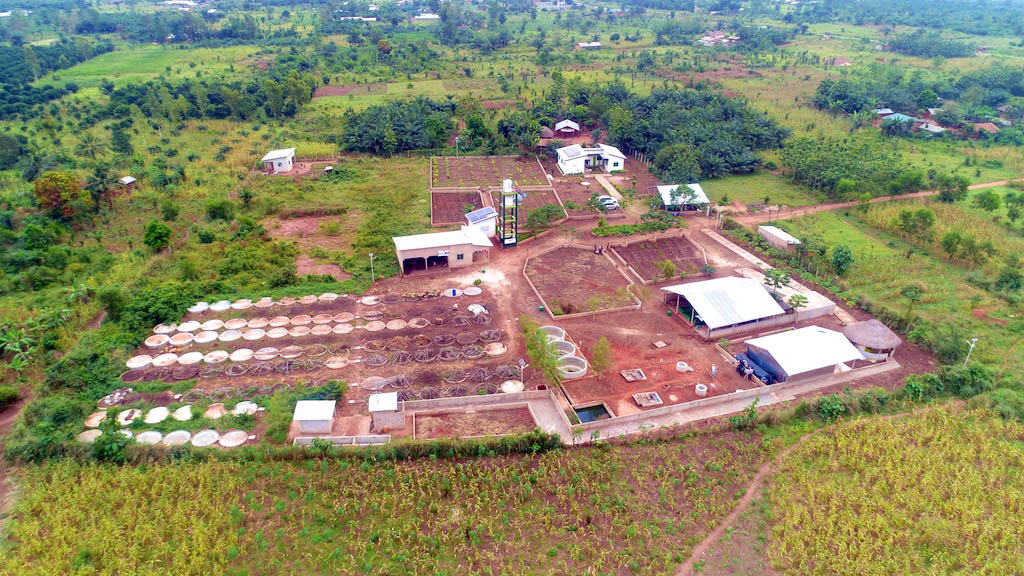
Mark Giannelli, the president of the foundation, welcomed us. ReBin began to take shape while he was writing his Master of Business Administration thesis in sustainable development – a project he began during a mid-life crisis.
The Geneva-based entrepreneur was immediately drawn to Benin, a country which – compared to its West African neighbours – sets a high standard in terms of anti-corruption, crime and economic development. “I saw a pile of rubbish – a wild dump in the middle of a market – and where everyone else saw a threat and a problem, I saw a great opportunity to start the project,” he explained.
Surrounded by a small welcoming committee made up of the main local actors involved in the centre’s activity, we followed Giannelli through the different areas of the site, where organic waste is transformed into, among other things, a clean and cheap cooking gas which is safer than the wood or coal commonly used in Benin.
Built in less than a year by a team of local craftsmen and entrepreneurs with the support of Swiss and Beninese technical partners, the centre extends over more than a hectare and is based on a circular economy model where all resources are maximised. The water from the borehole is first used for fish farming, then fed into the biodigester which transforms the organic waste farmers and villagers sell to ReBin.
The biodigester works like a big stomach, Giannelli explained as he approached the mouth of the machine. Bacteria digest the organic material and produce biogas, which due to its light weight is then released into the upper part of the unit. Through a tube at the top of the biodigester, the biogas is transferred into large bags without the need for electricity. The bag can then be connected by a simple tube to a gas cooker. Ten kilograms of organic waste produce one cubic metre of biogas, enough for two to four hours of cooking.
Further along, using the enriched water from the fish ponds, two employees were busy turning and watering the compost piles, where remains of pineapple, a typical Beninese fruit, were still visible. Anything that cannot sink into the belly of the biodigester is transformed into compost, enriched by the effluent generated through biogas production.
Long-term vision
After three years of activity, the amount of biogas being produced has doubled, while registrations by families and farmers have increased from 230 in 2018 to 452 in 2021. In the meantime, the foundation’s projects have evolved to fit the local context. A partnership to recover organic waste collected in the south of the country by the Société de gestion des déchets et de la salubrité (SGDS) has been established.
Given the importance of drinking water for local communities, ReBin also wants to build a dozen boreholes by 2024 and exchange water for organic peelings. Every kilo of waste collected will be exchanged for 12 litres of drinking water.
Biogas production could also be decentralised to save villagers long walks to sell their waste to ReBin. “Travelling is indeed a problem for those who live a bit far from the centre,” explained Delphine Sedonou, the centre’s administrative manager. Instead of selling biogas in backpacks, small semi-mobile biodigesters could be installed in households, directly connected to the cooker, a solution that has already proved successful in other developing countries.
The ReBin Foundation is financed by grants, mainly from municipalities in Geneva, other Swiss foundations and private donations. In Benin, it is building links with local NGOs and authorities. The pilot phase of a project promoting eco-citizenship in 50 schools was also launched in September 2022. “The long-term vision is to teach these children the benefits of the circular economy,” explained Mark Giannelli. “Not only in terms of the environment, but especially in terms of economic and social development.” Schoolchildren make up a third of Benin’s population.
Biogas by the lake
The second Beninese biogas production site was built in 2017 with Swiss funding, and is located in the lakeside township of Sô Ava, on the northern shore of Lake Nokoué, to the south of which lies Cotonou. The location is not insignificant: due to the proximity of the water table, it would not have been possible to build a completely submerged biodigester like ReBin’s. The top half of the biodigester was therefore covered with a flexible membrane that protrudes from the ground.
In the offices of ACED, a Beninese NGO, we met Donald Houessou, co-founder and director of operations, who was in charge of implementing the community of Sô Ava’s request. The biodigester, he said, was the ideal solution to two problems raised by the local population: waste management and the proliferation of the water hyacinth, a plant which hinders the work of fishermen. The water hyacinth was already being harvested and composted by market gardeners.
In 2014, ACED contacted the engineering firm EREP in French-speaking Switzerland. “We are often contacted by biogas project developers in West Africa looking to benefit from our technical expertise,” said Yves Membrez, director of EREP.
Thanks to EREP’s involvement, the project secured financial support from Repic, a Swiss government platformExternal link that helps renewable energy projects in developing and transition countries. Repic finances 50% of the projects – in this case about CHF100,000 ($101,720) – with the other half being paid by participating organisations. This support enabled a feasibility study to be carried out between 2014 and 2015, as well as the installation of the biodigester in Sô Ava between 2017 and 2019. However, the provision of funds alone is not sufficient to ensure the sustainability of such projects.
Long-term impact
The final reportExternal link written in 2019 by EREP for Repic states that ACED was able to replicate the installation in other communes in the region on its own. However, Donald Houessou explained that the biogas plant has been out of operation for a year and a half: the biogas bags into which the biodigester was emptied are torn. The experiment worked, Houessou said, but repairing the bags proved difficult. “We went to all the local craftsmen who can do this kind of work, but they didn’t know this material. So they weren’t able to repair the bags,” he said.
To understand how the project came to a standstill, I met Anita Fasel, coordinator of the government platform Repic, in her office in Sankt Ursen, a countryside village in canton Fribourg. Local materials are generally preferred in construction, she said, so that projects can be replicated. But in this case, EREP had to import the tarpaulin and the bags used for transporting biogas from Europe. After the one-year follow-up contract with Repic, EREP had no further contact with ACED in Benin and therefore did not know that the biodigester was no longer in operation.
Fasel gave the following explanation. “If something belongs to us, we will try to repair or replace it. But if you can’t afford it, it’s difficult.” She said Repic follows up with its beneficiaries once a year for five years after the end of a project. Yves Membrez, director of EREP, says he has not been contacted by Repic since the final report was submitted – nor have other beneficiaries contacted by SWI swissinfo.ch. Only one in six beneficiaries we contacted – out of the 45 projects that have been completed in the past five years – said they had received a call from Repic.
The fate of the methanisation plant in Benin is not an isolated case among the projects supported by the Swiss platform. The success rate – i.e. projects that have been completed – is 87%. Of these, two-thirds reach the multiplication phase, which is one of the criteria for Repic support. “This is an impressive figure when you consider that these are innovative projects in developing countries,” Fasel said. External factors such as political changes can also influence progress.
The future of biogas in Benin
Despite its potential to combat waste and provide clean fuel for cooking, biogas production is not widespread in Benin: there is no mention of it on the website of the Beninese Ministry for the Living Environment and Sustainable Development. No one at the ministry was available for an interview. NGOs provide impetus and expertise to the few projects that exist.
For the ReBin Foundation, which is still involved in the Toffo site, where it supports a dual apprenticeship programme, the future looks promising. “Today, we cover a district of about 14,000 inhabitants, so the potential is still huge,” Mark Giannelli said. “The new modern market in Houègbo will open soon, so we will have to manage organic waste there too.” Small-scale projects are often seen as a drop in the ocean: in the case of ReBin, it is gradually turning into a lake. But on the shores of Lake Nokoué, the project has drowned.
Edited by Veronica De Vore & Sabrina Weiss; translated from French by Catherine Hickley/dos
This report was produced as part of the En Quête d’Ailleurs (EQDAExternal link) project, an exchange between Swiss and developing country journalists. This year, eight journalist tandems worked on the theme of “Waste, a collective responsibility”. Espoir Hounmabou, a journalist at Eden TV/Diaspora FM in Benin, chose to exploreExternal link a litter awareness campaign conducted in Switzerland.
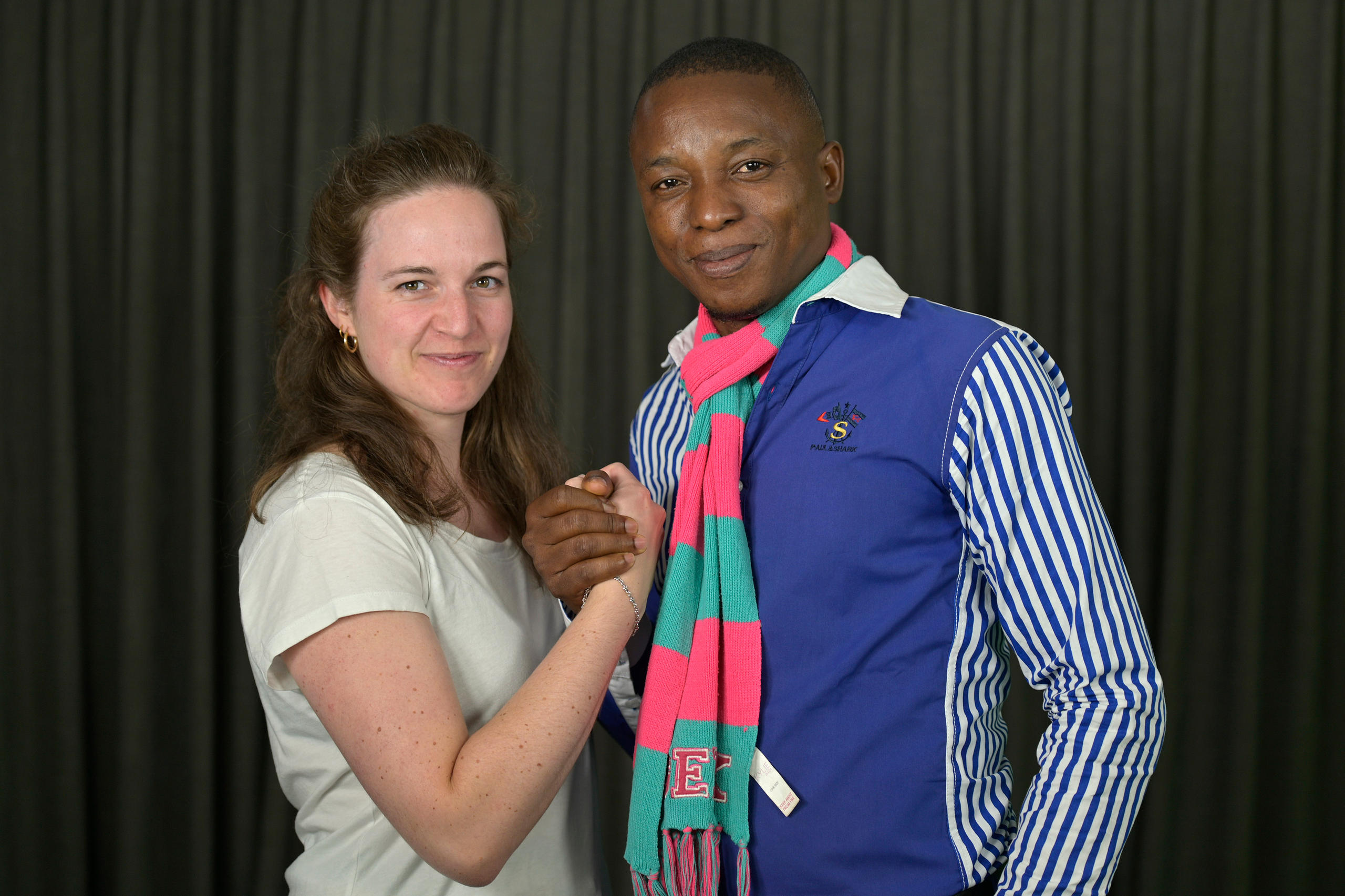

More
Swiss Abroad: hurdles to studying in Switzerland remain

In compliance with the JTI standards
More: SWI swissinfo.ch certified by the Journalism Trust Initiative

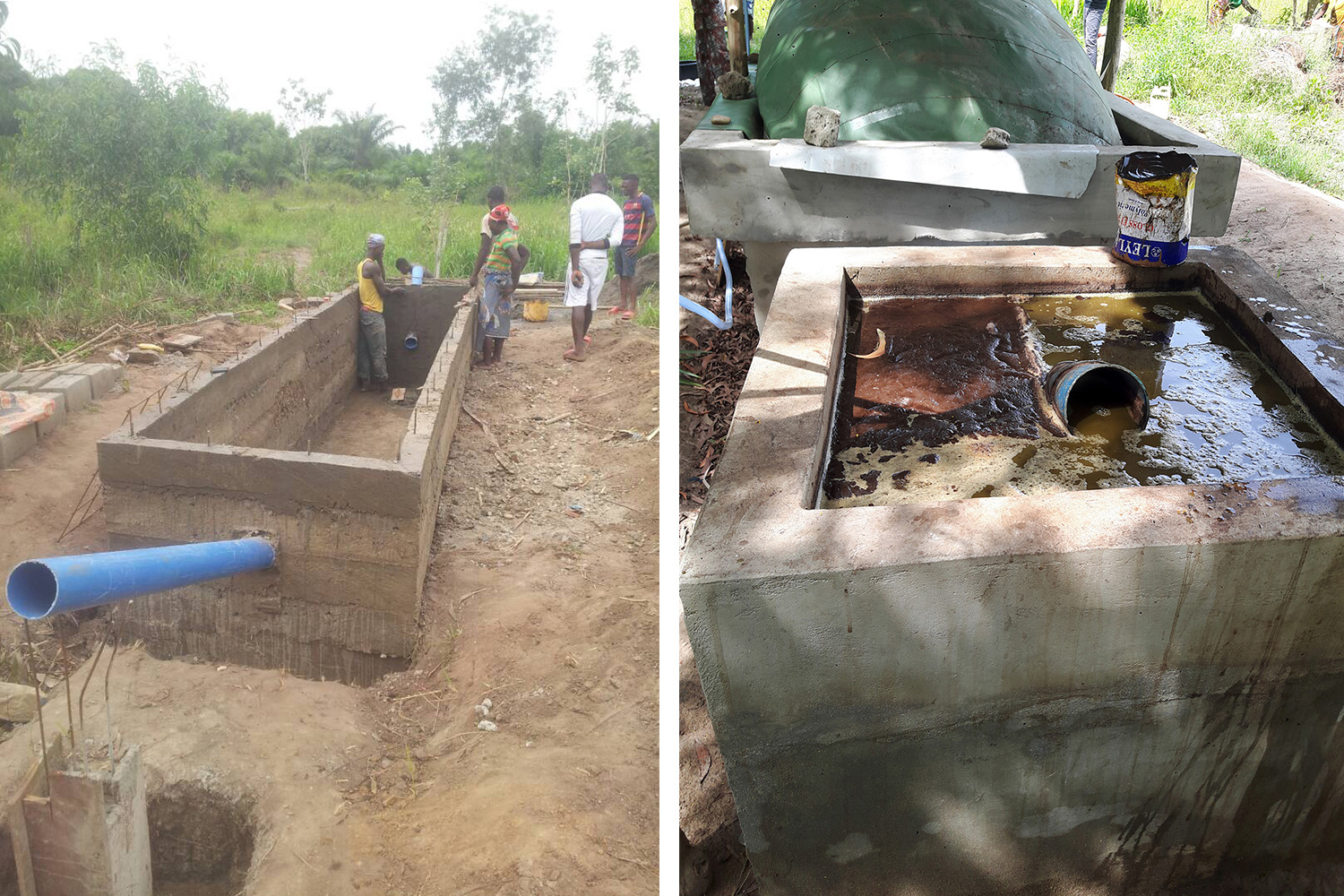
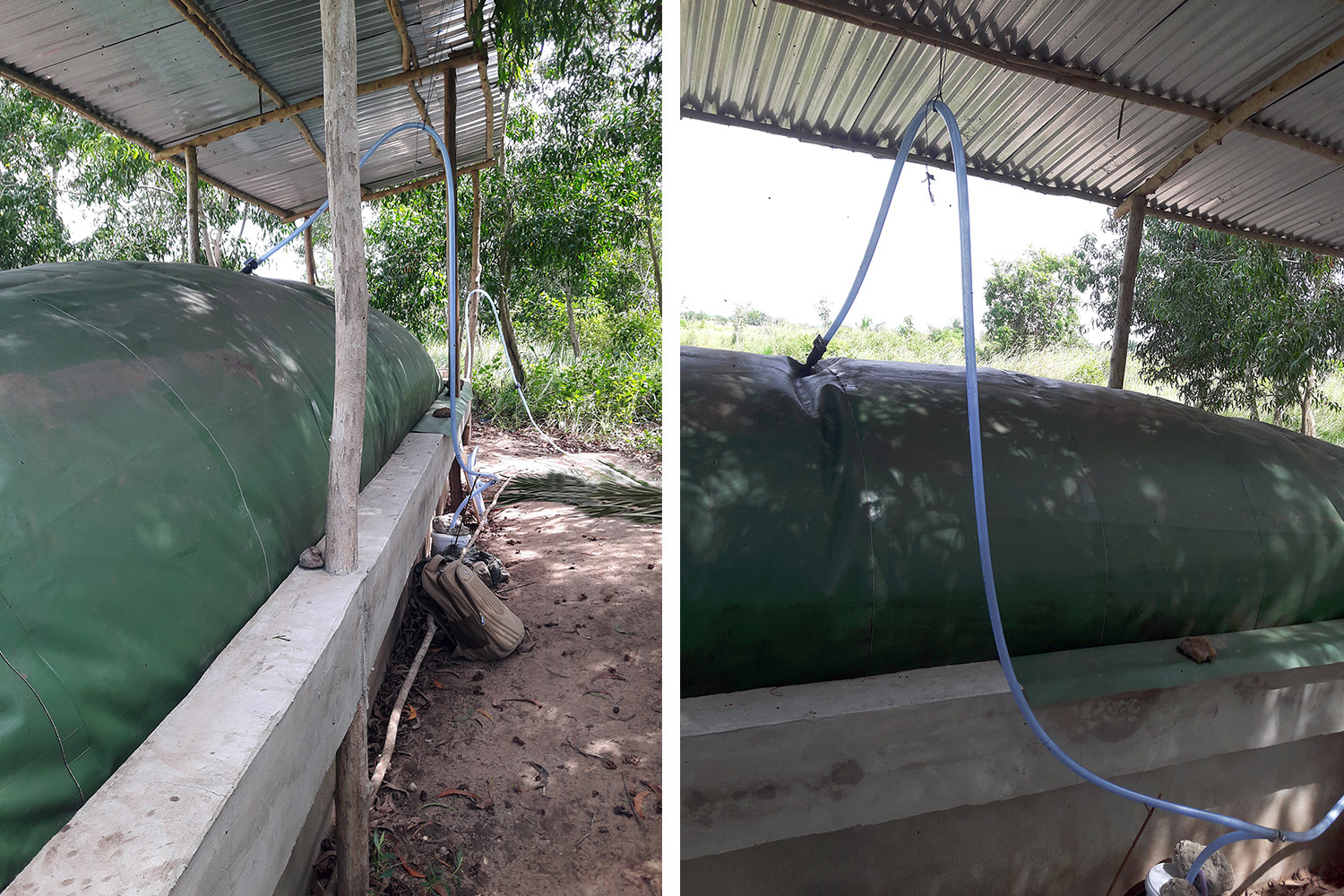



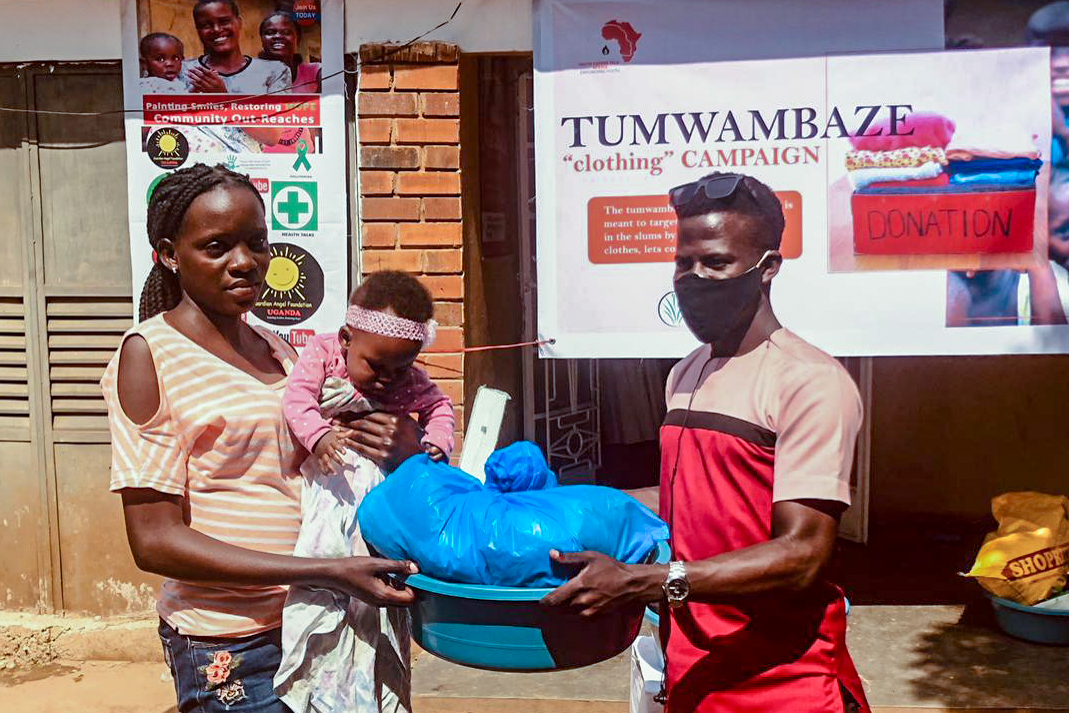
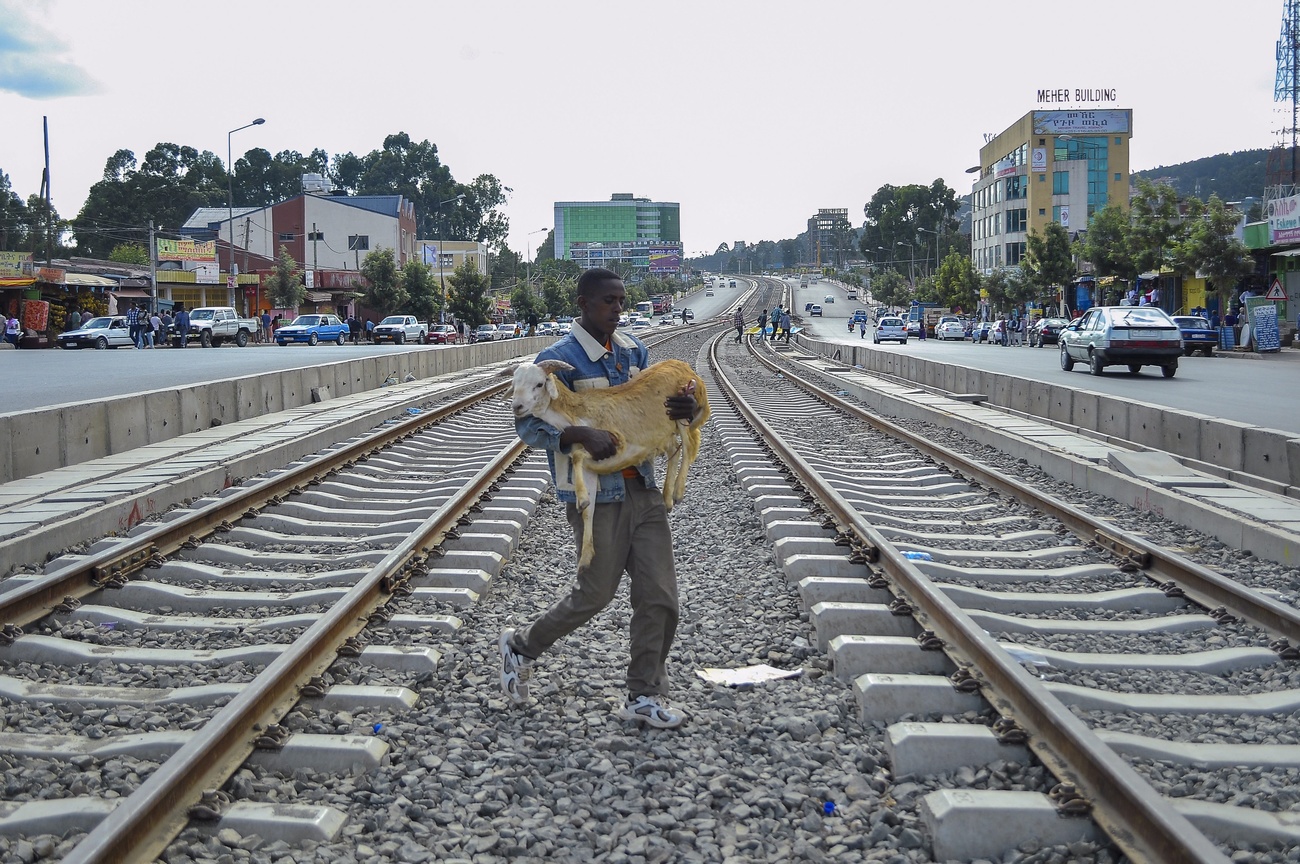
You can find an overview of ongoing debates with our journalists here . Please join us!
If you want to start a conversation about a topic raised in this article or want to report factual errors, email us at english@swissinfo.ch.